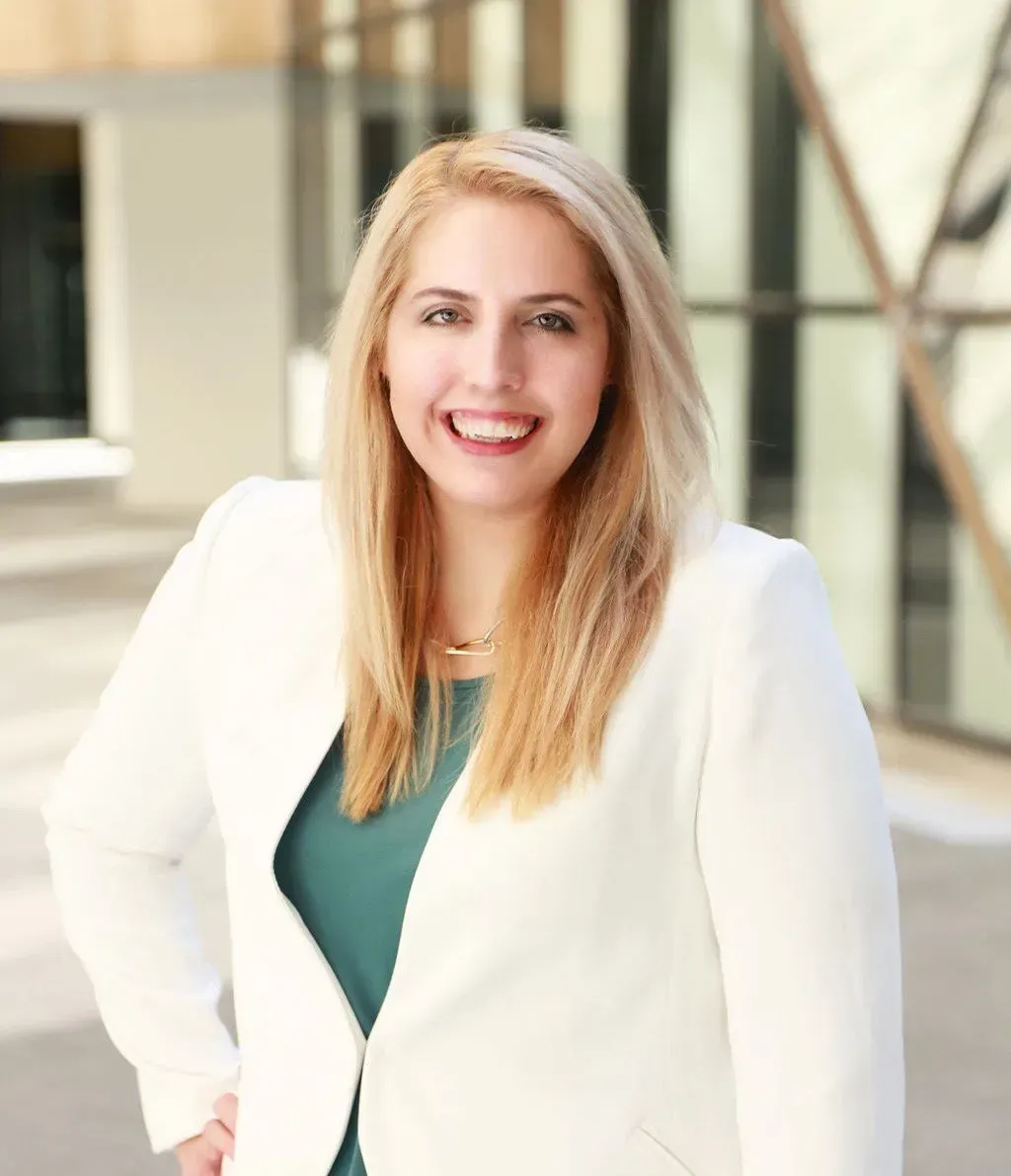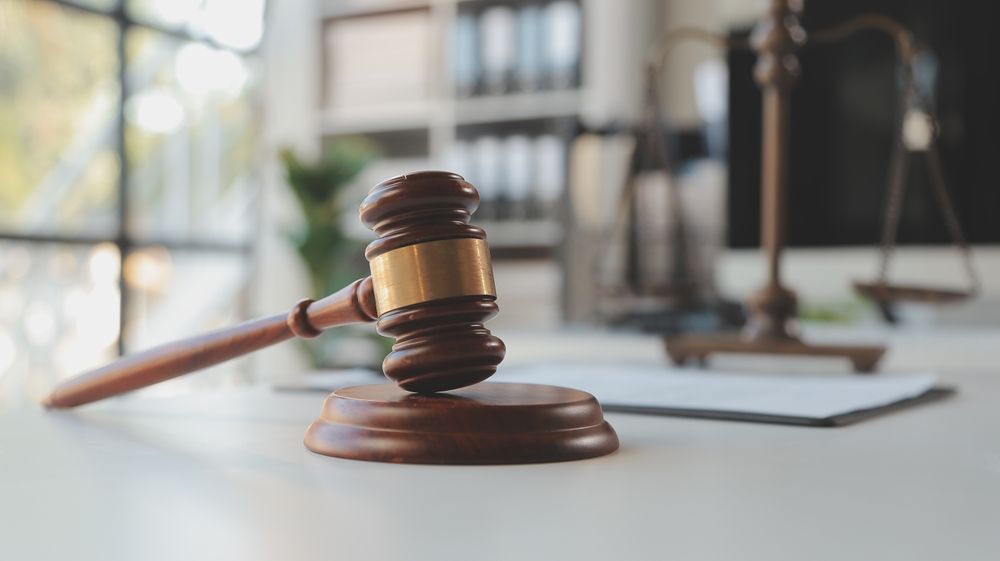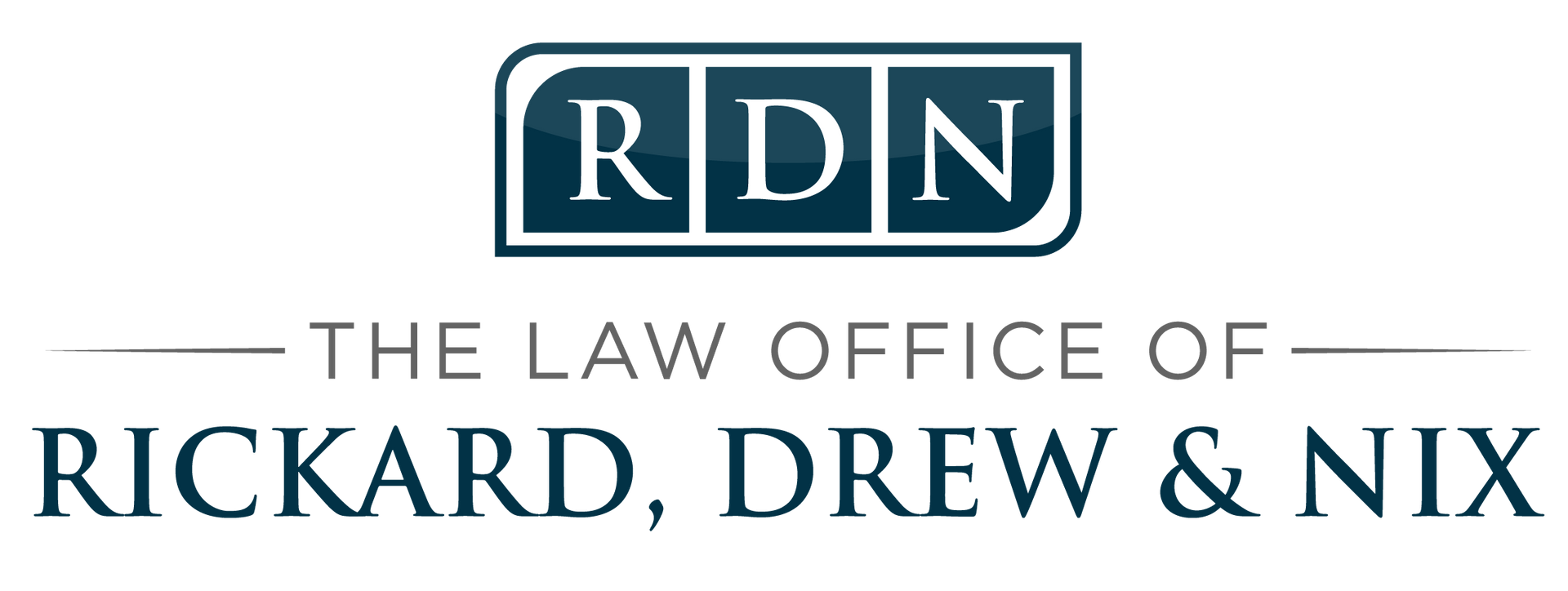Insight Into Atlanta's Truck Accident Lawsuit Procedures
Trucking can be a risky business. Factors like severe weather, icy roads, and reckless drivers make it even riskier. When accidents happen and people are hurt, lawsuits inevitably follow. Protecting your livelihood as a trucking professional counts just as much as making sure victims are made whole. Learning how truck accident lawsuits work in Georgia is a wise first step.
Truck accidents can significantly impact lives, often leaving victims unsure about their legal rights. In Atlanta, understanding the truck accident lawsuit procedures is crucial for those seeking compensation. This article will provide insight into the key steps involved, including the causes of truck accidents, how to prepare for legal action, and the importance of gathering essential evidence. By engaging with this content, readers will gain clarity on how to navigate their truck accident case effectively, addressing common pain points such as recognizing liability and securing a fair verdict.
Grasping the Basics of Truck Accident Lawsuits in Atlanta
Understanding truck accident lawsuits in Atlanta begins with grasping the legal definition of truck accidents as outlined in Georgia law. This section will explore Atlanta's specific truck accident laws and regulations, focusing on how factors like comparative negligence play a role in determining liability. Additionally, it will address how pain and property damage are evaluated during jury trials following such accidents.
Learn the Legal Definition of Truck Accidents in Georgia
In Georgia, a truck accident occurs when a commercial truck is involved in a collision or incident on public roadways. The definition also encompasses accidents that result from negligence, which may include issues like improper maintenance of the truck, violations of safety regulations, or driver error. Understanding the legal framework surrounding these incidents is crucial for victims pursuing compensation in an Atlanta truck accident lawsuit.
The evaluation of physical injury, such as neck injuries, plays a critical role in these cases. Courts assess the severity and impact of injuries on the victim’s daily life, influencing potential settlements or jury verdicts. Factors like the need for physical therapy and the duration of recovery can significantly affect the compensation awarded in Georgia truck accident claims:
Review Atlanta's Truck Accident Laws and Regulations
Atlanta's truck accident laws require strict adherence to regulations governing commercial vehicles, including compliance with traffic light signals. When a truck driver neglects these signals and causes an accident, determining liability becomes crucial. Victims should seek legal advice to understand their rights, especially if they may be eligible for a settlement through liability insurance claims.
In cases of severe accidents, such as those leading to wrongful death claims, Atlanta laws provide specific procedures for those affected. The process may involve negotiating settlements with insurance companies to ensure fair compensation for the loss endured. Understanding these regulations can empower victims and their families to navigate the complex legal landscape surrounding truck accidents effectively:
Recognizing the Causes of Truck Accidents on Atlanta Roads
Common factors leading to truck accidents on Atlanta roads include equipment failure, like brake issues, and driver negligence. Understanding these elements is vital in personal injury cases, especially as they form the basis for depositions and claims. Additionally, analyzing the role of negligent driving can provide insight into reducing accidents on major routes, such as Interstate 285.
Identify Common Factors Leading to Truck Accidents
Truck accidents in Atlanta are often attributed to common factors such as distracted driving and equipment failure. Distracted driving poses a significant risk as drivers may split their attention between their mobile devices and the road. This lack of focus can lead to devastating accidents that inflict not only physical injuries but also emotional anguish on victims and their families.
Furthermore, negligence in maintaining vehicles is a critical factor in truck accidents. Trucks require regular inspections to ensure that essential components, like brakes, are functioning properly. When transportation companies fail to perform these checks, the result can be catastrophic, leading to serious injuries and financial burdens for those involved. Recognizing these issues can help victims seek the necessary legal support in the aftermath of a truck accident:
Analyze Driver Negligence and Its Impact on Accidents
Driver negligence is a leading cause of commercial truck accidents on Atlanta roads, and it can have devastating consequences for all involved. When a truck driver fails to adhere to safety protocols or becomes distracted, the likelihood of serious injuries—such as chronic pain or amputation—significantly increases. Victims often find themselves grappling with not only immediate injuries but also long-term physical and emotional repercussions, which can complicate the legal process and the pursuit of compensation.
In legal contexts, establishing negligence is crucial for holding the responsible party accountable. Court reporters play a vital role in documenting the proceedings, which can include testimony from passengers, medical experts, and safety inspectors. These records help illustrate the driver's actions and the resulting impact on the victims. A clear understanding of driver negligence provides victims with the necessary insights to navigate their truck accident lawsuits effectively, ensuring their rights are protected and their cases are presented accurately in court.
Preparing to File a Truck Accident Lawsuit in Atlanta
Before filing a truck accident lawsuit in Atlanta, victims must determine their eligibility to seek a truck accident settlement. This involves understanding factors like negligence and the type of vehicle involved, such as a box truck. Additionally, it is essential to learn about the statute of limitations for truck accidents, as this legal timeframe affects the ability to pursue claims. Both aspects are crucial for ensuring proper legal representation by a lawyer.
Determine Your Eligibility to File a Lawsuit
Determining eligibility to file a truck accident lawsuit in metro Atlanta involves assessing several key factors. Victims must establish that negligence contributed to their injury, which often includes evaluating the percentage of fault attributed to the truck driver or other parties involved. Understanding these elements is crucial as they can significantly influence the outcome of a case and the compensation received.
Additionally, victims should consider the specifics of the accident, such as the lane where the incident occurred and the type of vehicle involved. Engaging an advocate who specializes in truck accident litigation may help clarify the legal requirements and ensure that victims navigate the complexities of filing a lawsuit effectively. Proper guidance can make a substantial difference in securing the justice and compensation needed for recovery.
Learn About the Statute of Limitations for Truck Accidents
In Georgia, the statute of limitations for filing a truck accident lawsuit is typically two years from the date of the accident. This law is crucial for victims as it sets a deadline for pursuing legal claims for injuries or damages. Failure to file within this timeframe can result in losing the right to seek compensation, making it essential for individuals to act promptly and gather necessary testimony to support their case.
Understanding the statute of limitations is vital for those impacted by truck accidents, especially if the injuries lead to long-term disability. Victims must ensure that their legal representation is aware of this timeline to maximize the potential for a successful lawsuit. Engaging an attorney as soon as possible allows for proper assessment of the case, including gathering evidence and preparing for court if needed:
Handling the Legal Process After a Truck Accident in Atlanta
Initiating the filing process for an Atlanta truck accident lawsuit involves understanding the legal requirements for pursuing claims related to suffering, including spinal cord injury and potential surgery needs. Alongside this, responding effectively to any legal motions or requests, particularly in cases involving drunk driving or seeking punitive damages, is crucial for a successful outcome. These topics will provide practical insights on navigating this complex legal landscape.
Initiate the Filing Process for Your Atlanta Truck Accident Lawsuit
To initiate the filing process for a truck accident lawsuit in Atlanta, victims must first gather comprehensive evidence. This includes documenting the accident scene, collecting witness statements, and obtaining police reports. Each piece of evidence carries weight in portraying the truck driver's duty of care, which is critical for establishing liability and supporting claims for pain and suffering.
Victims should also be mindful of the emotional stress that often accompanies the aftermath of a truck accident. Consulting with an experienced attorney can ease this burden, as they can guide clients through the complexities of legal documentation and the filing process. Having legal support can increase the likelihood of a favorable outcome, allowing victims to focus on their recovery while ensuring their rights are effectively advocated in court.
Respond to Legal Motions and Requests Effectively
After a truck accident, responding to legal motions and requests effectively is crucial for the plaintiff's case. Engaging with a claims adjuster promptly allows for meaningful communication regarding the details of injury claims, including those involving serious conditions like paralysis. If a claims adjuster requests additional documentation or information, it is essential for the plaintiff to provide these materials timely to avoid any failures that could jeopardize the compensation process.
Moreover, being prepared to meet requests from the opposing party or court can significantly impact the outcome of the case. Gathering evidence and responding to subpoenas should be handled with care and attention. Failure to comply with court orders may lead to negative implications in the courtroom, making it vital for the plaintiff to consult their attorney to navigate these legal requirements adeptly and ensure their rights are protected throughout the lawsuit process:
Gathering Essential Evidence for Your Atlanta Truck Accident Case
Gathering essential evidence is vital for building a strong case in an Atlanta truck accident lawsuit. This includes collecting police reports and medical records, which document the incident's details and any spinal cord injuries sustained. Additionally, securing witness statements and expert testimonies can significantly support claims related to vehicle hazards and insurance policy assessments. These steps are crucial in ensuring a comprehensive approach to the legal process.
Collect Police Reports and Medical Records Effectively
Collecting police reports promptly after a truck accident is essential for establishing a clear timeline of events, especially regarding how the accident happened at the intersection. These reports often contain crucial details about the incident, including witness statements and the officers' observations, which can play a critical role during negotiations or trial. Ensuring that victims obtain a copy of the police report can significantly aid their case, as it provides an official account that supports their claims for compensation.
Medical records are equally important in a truck accident lawsuit, as they document injuries and the prescribed medication necessary for recovery. Victims should gather these records to illustrate the extent of their injuries, which can influence both negotiations with insurance companies and the outcomes in court. Having comprehensive medical documentation allows attorneys to present a strong case that validates the impact of the accident on the victim's daily life and overall well-being.
Secure Witness Statements and Expert Testimonies
Securing witness statements and expert testimonies is crucial for a successful truck accident claim. Witnesses can provide firsthand accounts of the incident, which may help establish negligence on the part of the truck driver and others involved. Their observations can serve as vital evidence during a jury trial, particularly in proving the sequence of events and assessing the risk factors that contributed to the accident.
Expert testimonies also enhance a case's credibility by providing professional insight into aspects like vehicle safety and medical repercussions. For instance, a medical expert can explain the necessity of therapy following an injury sustained in an accident. This information can significantly impact the jury's understanding of the injury's severity and its long-term effects on the victim's life.
Choosing the Right Attorney for Your Atlanta Truck Accident Lawsuit
Choosing the right attorney for a truck accident lawsuit in Atlanta requires evaluating their experience in handling cases involving commercial vehicles and understanding the complexities of premises liability and property damage. It's essential to schedule consultations to discuss legal options, allowing victims to gauge how well the attorney's expertise aligns with their needs. These steps can significantly impact the outcome of a case.
Evaluate Attorneys' Experience in Truck Accident Cases
When evaluating attorneys' experience in truck accident cases, it is essential to consider their track record in handling similar incidents that may involve complex legal liability issues. Attorneys who have successfully represented clients in cases involving catastrophic injuries, such as those resulting from jackknifing accidents, often possess the necessary skills and knowledge to navigate the intricacies of truck accident law. Their familiarity with the challenges posed by factors such as driver fatigue and the unique circumstances surrounding commercial vehicles can significantly enhance their effectiveness in securing justice for victims.
Moreover, experienced attorneys are well-equipped to deal with the intricacies of liability when pedestrian injuries occur in truck accident scenarios. A strong understanding of the legal framework surrounding these incidents can enable them to construct compelling cases that highlight the negligence of truck drivers and transportation companies. By choosing an attorney with a proven history in truck accident litigation, victims can be more confident that their claims will be effectively advocated, increasing the chances of obtaining the compensation needed for recovery.
Schedule Consultations to Discuss Your Legal Options
Scheduling consultations with attorneys experienced in truck accident cases is a crucial step for victims seeking to understand their legal options. During these meetings, attorneys can provide clarity on the fault findings in the case and explain how the statute of limitations may impact the ability to file accident claims. Victims benefit from asking specific questions about their situation to gauge how the attorney would handle their case.
In these consultations, potential clients should discuss the details of their truck accident, including the circumstances surrounding the incident. Attorneys can offer practical insights into the strength of the case based on evidence and liability issues. This proactive approach not only helps victims feel more prepared but also empowers them to make informed decisions about pursuing their accident claims, ensuring their rights are defended effectively.

Attorney Jessica Nix, Managing Partner
Jessica Nix is Managing Partner and a Personal Injury Attorney at the Law Office of Rickard, Drew & Nix in Atlanta, with more than 10 years of experience representing injury victims in courts across Metro Atlanta. She graduated cum laude from the University of Georgia School of Law, where she served as an editor of the Journal of Intellectual Property Law. Jessica is admitted to the State Bar of Georgia, is a member of the Georgia Trial Lawyers Association, and was named a Georgia Super Lawyers Rising Star for Personal Injury from 2017 to 2019. To speak with the Law Office of Rickard, Drew & Nix, schedule a free consultation today.



